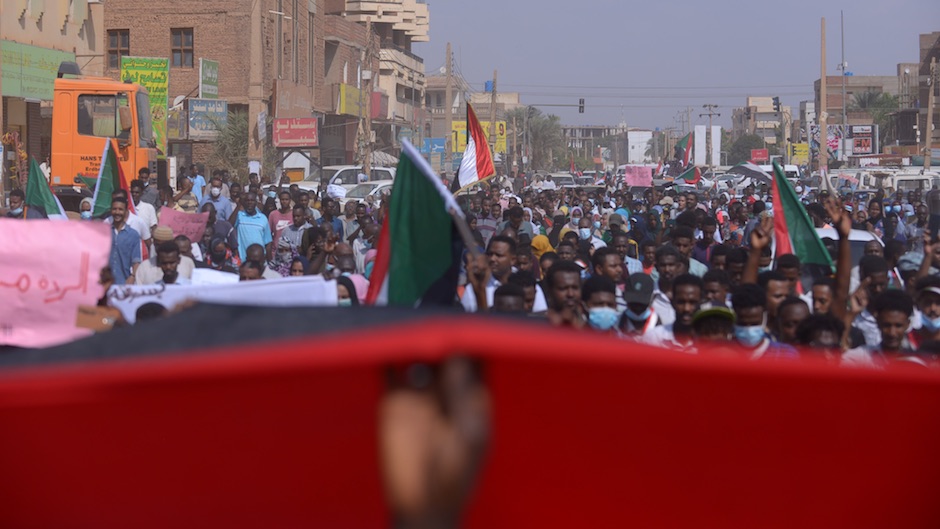Church unity in Sudan suffers from endless political changes
The reinstatement of Prime Minister Hamdok, deposed by the military a month ago, divides Christians on guarantees for the democratic transition process.
Protestante Digital, Christianity Today · KHARTOUM · 15 DECEMBER 2021 · 11:00 CET

Just over a month ago, Sudanese army general Abdel Fattah al Burhan announced the dismissal of Prime Minister Abdallah Hamdok and the military takeover.
Then, thousands of Sudanese, including members of the Christian churches in the country, took the streets to demonstrate against the coup, in protests that have dragged on for weeks and in which dozens of civilians have been killed by the army.
Now there has been a reversal of the situation. Hamdok and al-Burhan have reached an agreement for the military to reinstate Hamdok as Prime Minister in exchange for concessions to the army which affect the guidelines for the transition that were set out in 2019, following the overthrow of Omar al-Bashir.
Among other things, the agreement gives head of state and oversight powers to the Sovereign Council, a body set up by the military after the October coup, giving the generals more authority in the transition process.
It also pledges to form a technocratic government and restores the constitution that was proposed at the beginning of the current transition, although with some exceptions regarding the armed forces.
Popular indignation and institutional welcome
Many social entities and civil associations have publicly expressed their rejection of the agreement, and thousands of people have once again demonstrated in the streets of Khartoum.
Furthermore, several ethnic clashes in Darfur and in the Nuba Mountains have left more than a hundred people dead in the last few days.
The Sudan Professionals Association has referred to the agreement as “political suicide” and “betrayal”. Even the political alliance of the Forces for Freedom and Change, which has been close to Hamdok throughout the transition process, has expressed its opposition to any negotiations with the coup plotters.
However, international institutions have welcomed the reconciliation between Hamdok and the military.
The United Nations Integrated Transition Assistance Mission in Sudan (UNITAMS) defined the agreement as “a consensus on resolving the constitutional and political crisis that was threatening the stability of the country”.
Saudi Arabia, Egypt and the African Union have also supported Hamdok's agreed return.
Division among Christians
Sudanese Christians disagree on Hamdok's return. “Most Christians support Hamdok in returning to his position”, said Susanna al-Nour, a member of Faith Baptist Church in Khartoum, to Christianity Today.
“But a smaller part rejects him, saying he should not cooperate with a criminal”, she added.
However, a Sudanese evangelical leader also told Christianity Today that “Christians are in great disagreement with this step, some in Khartoum support him, but they are very few”.
“The state is controlled by security, but it is not offering security”
“The military is causing all the problems it lists as reasons to intervene. The state is controlled by security, but it is not offering security to the people”, denounced the evangelical leader.
While some evangelicals, such as al-Nour, believe that “Hamdok is intelligent and wise and knows how to plan”, others see the agreement as a perversion of the transition process that began in 2019, or they just miss the stability under al-Bashir's regime.
“Entering our third year [of transition], we are still at the starting block, with no justice and no real freedom. And while we demonstrate, people are going hungry. Even this is a delay”, pointed out Aida Weran, academic officer for Nile Theological College, which has campuses in Khartoum and Juba.
Published in: Evangelical Focus - world - Church unity in Sudan suffers from endless political changes
